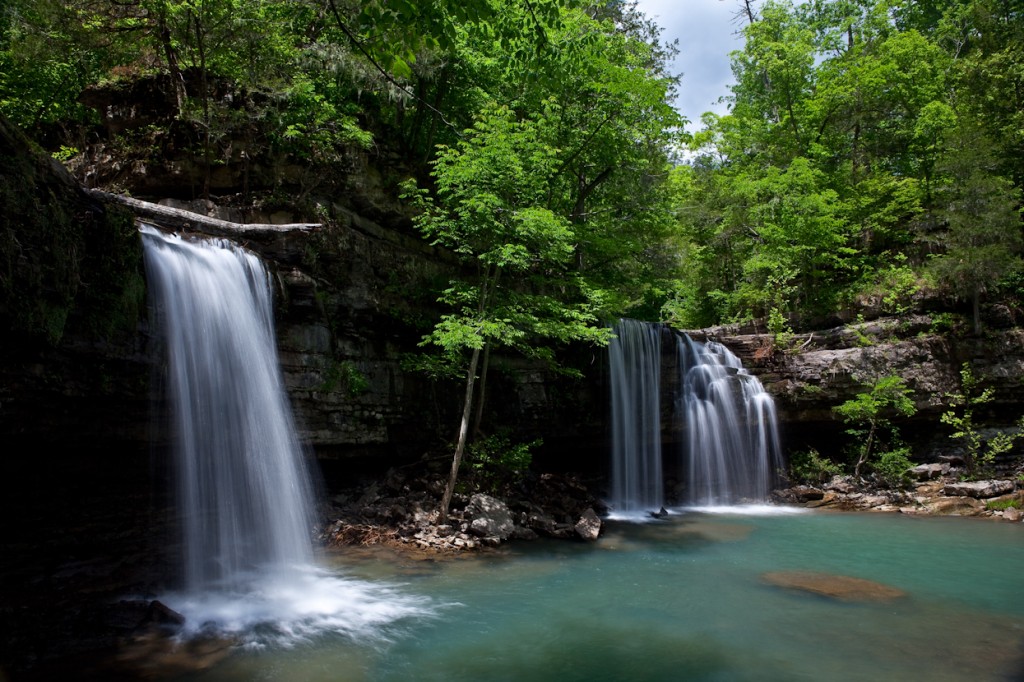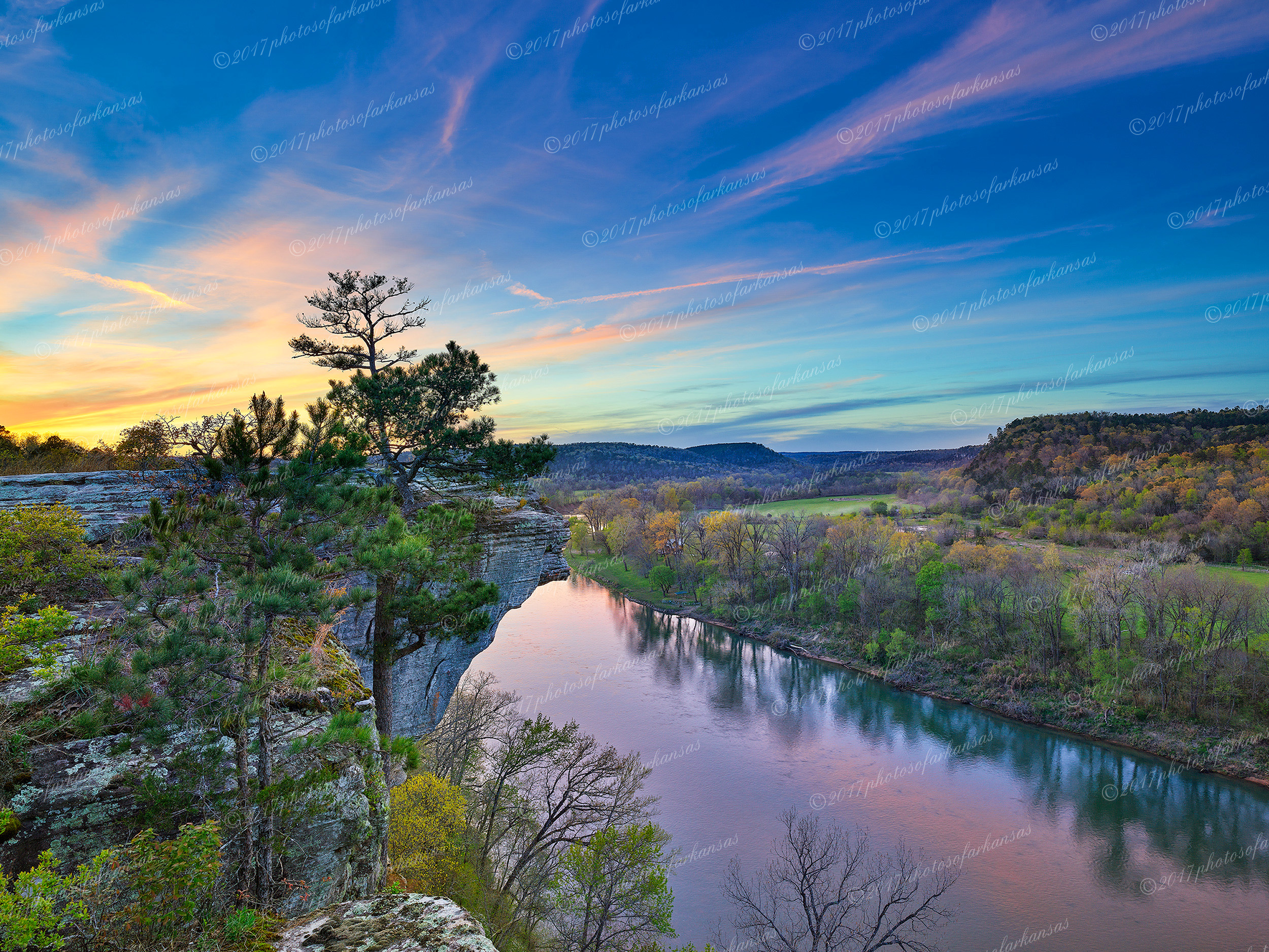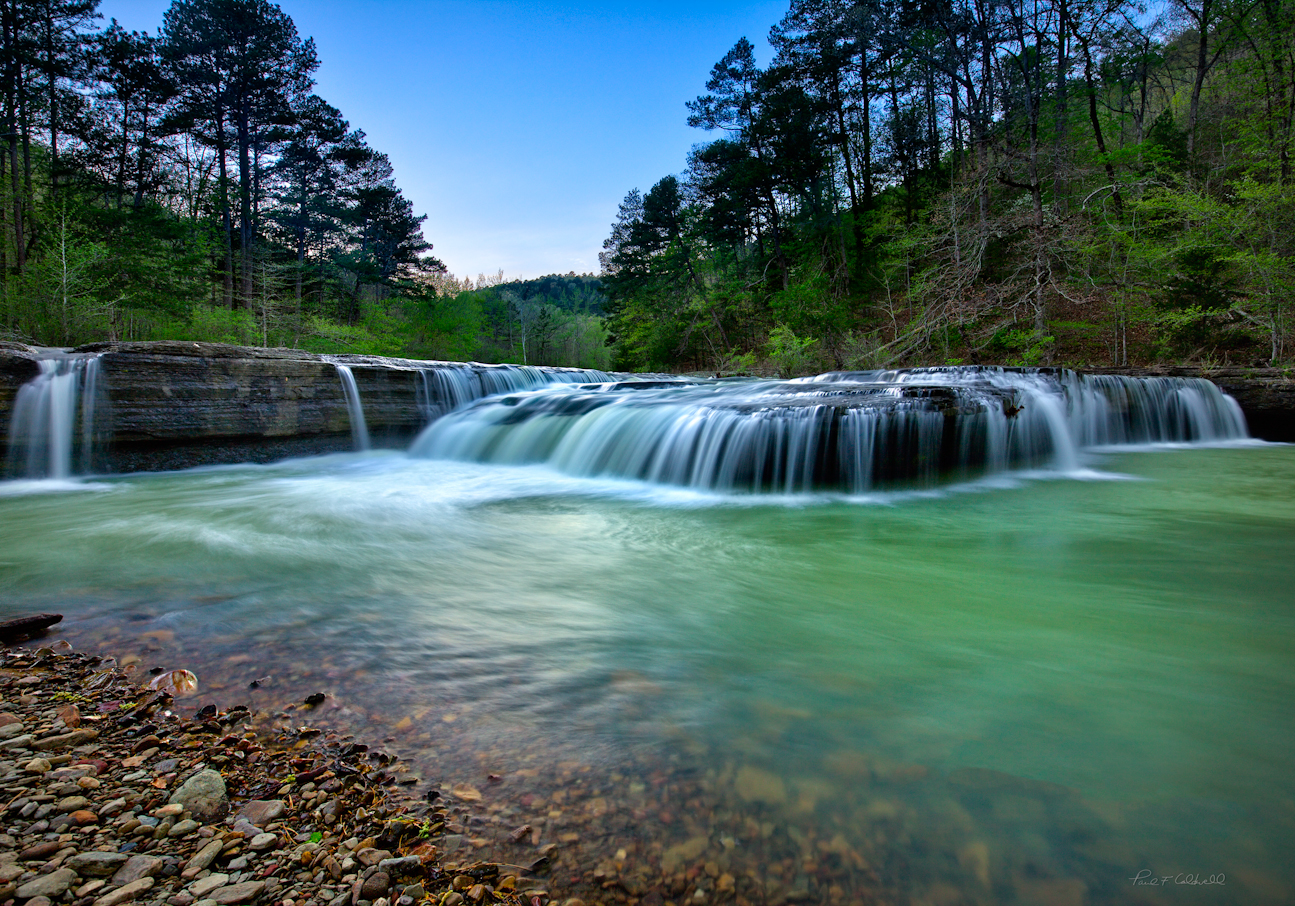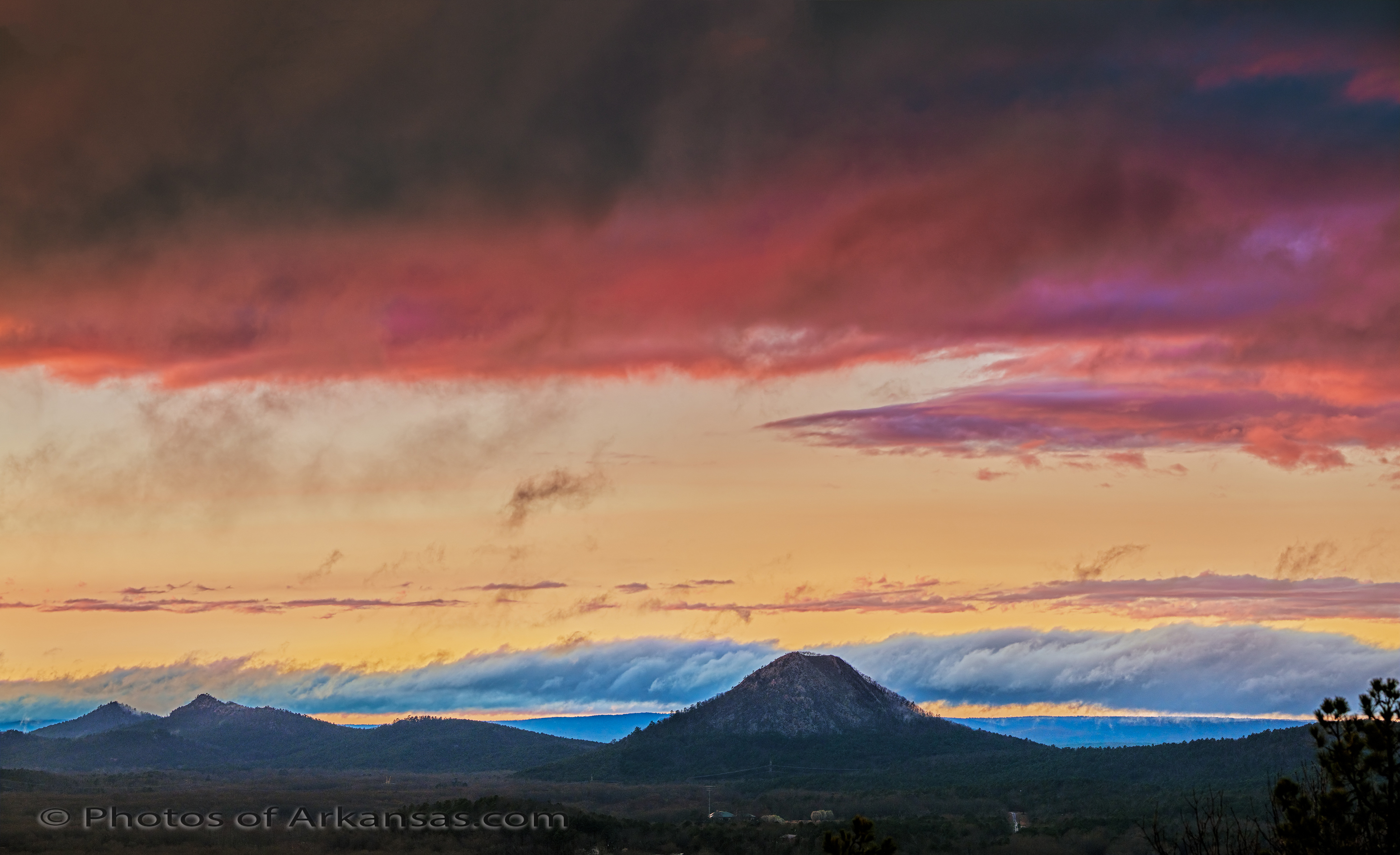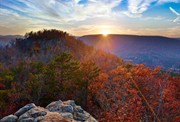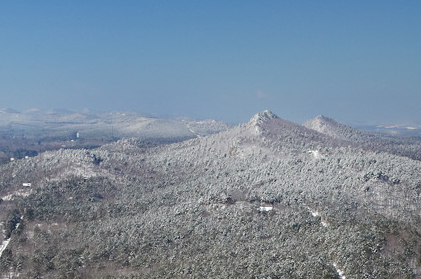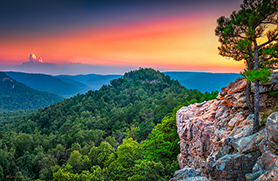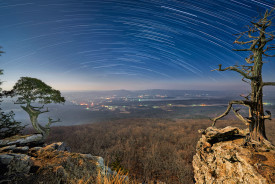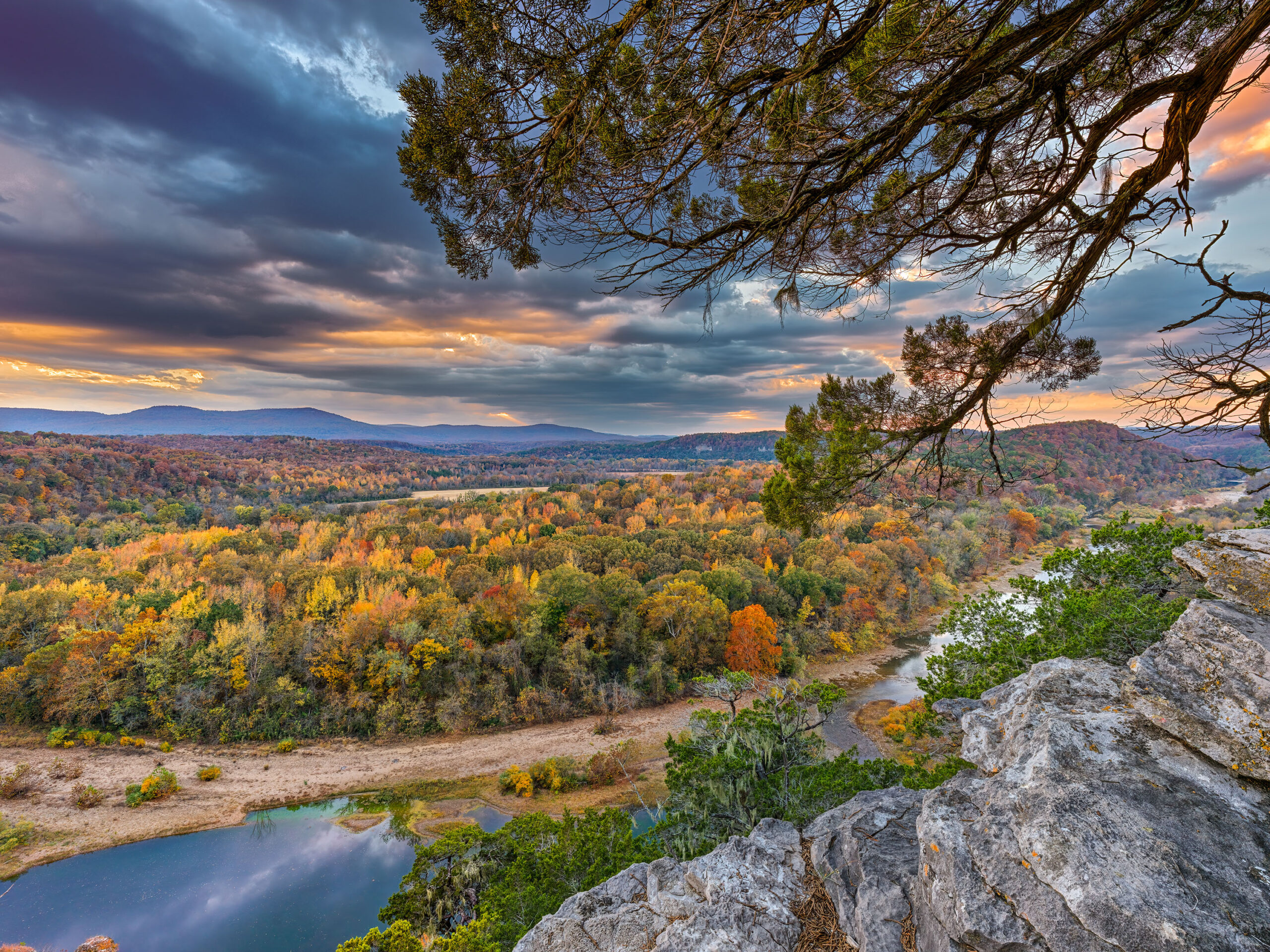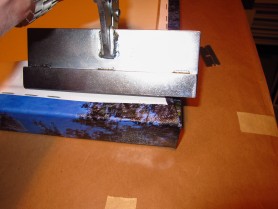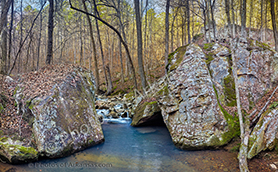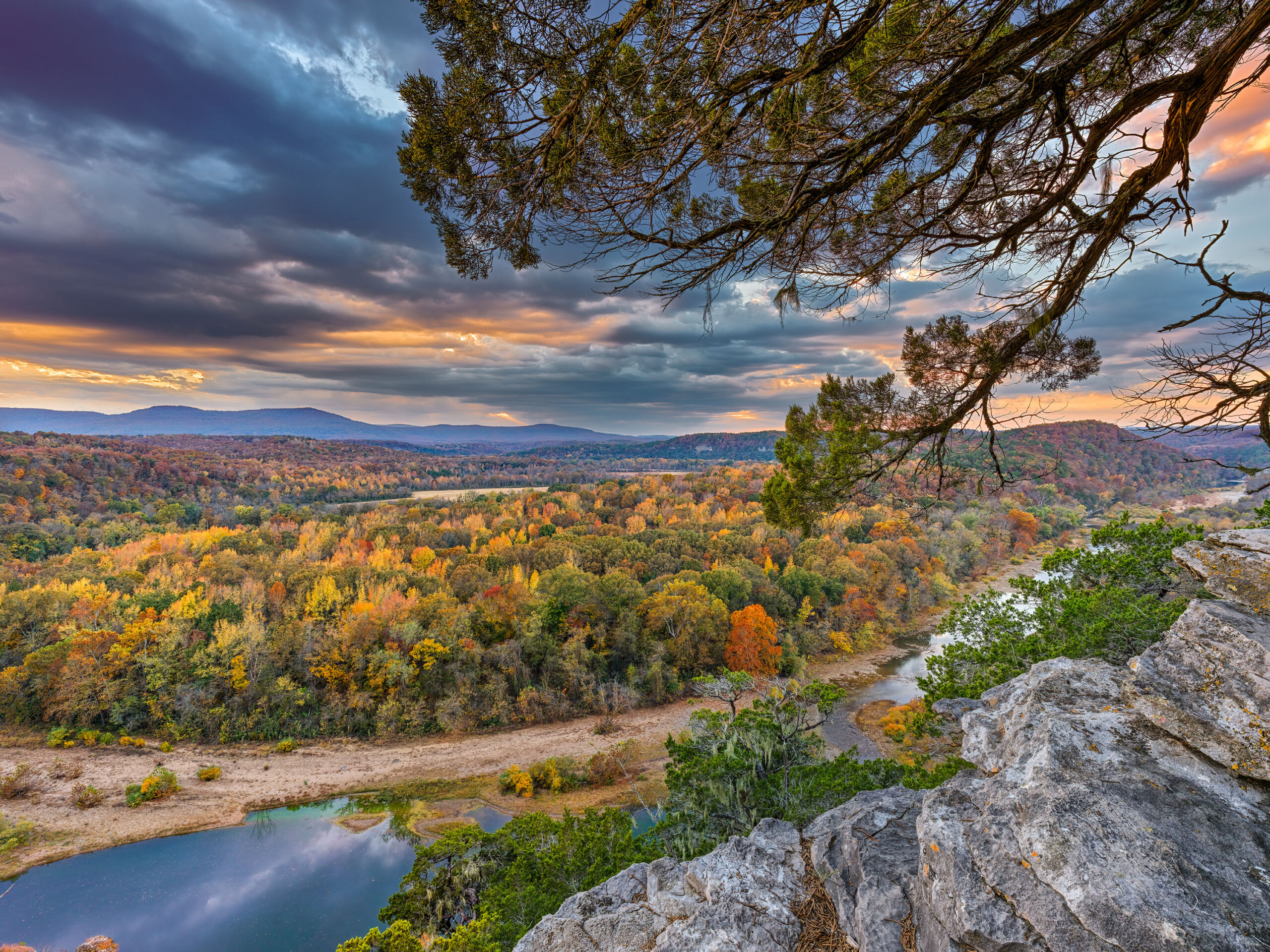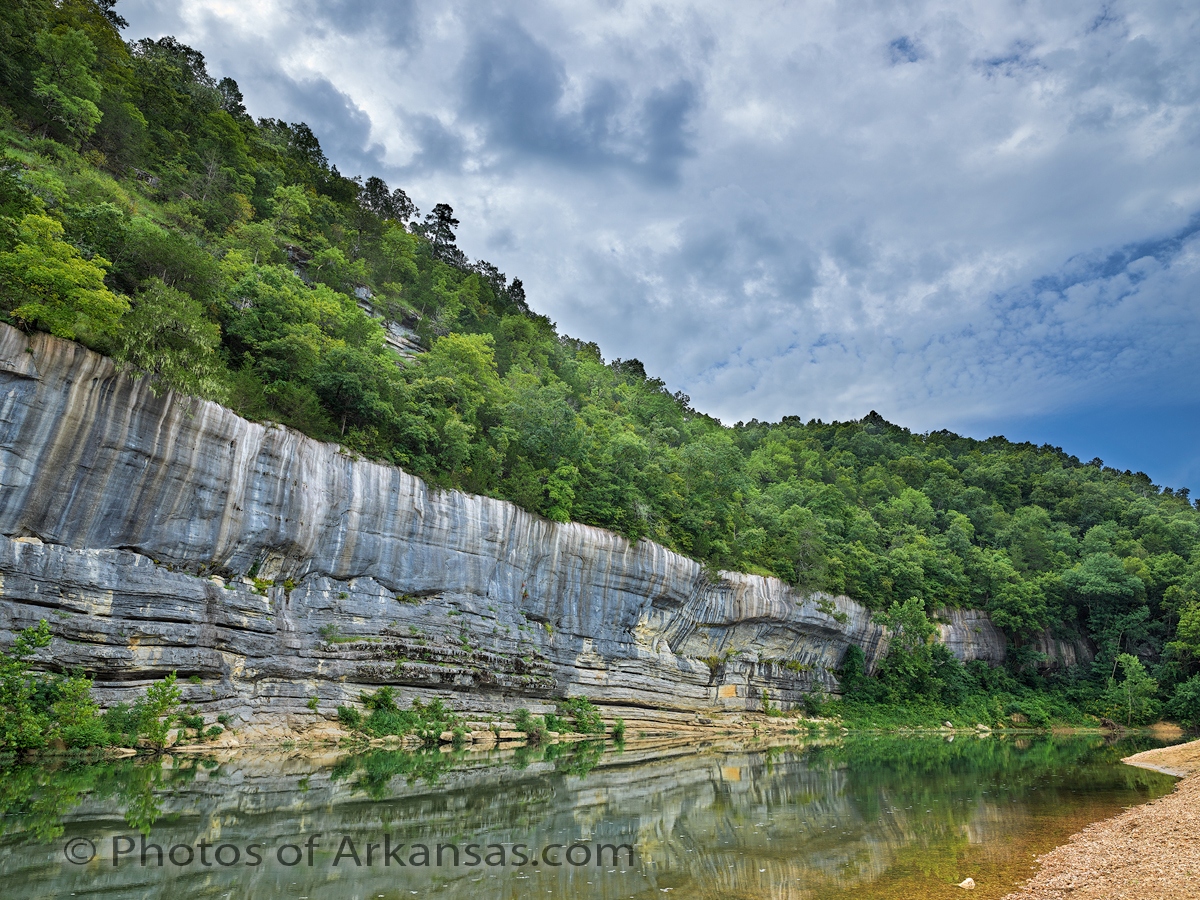09/07/12 Featured Arkansas Photography–Twin Falls of Big and Long Devils Forks in the Richland Wilderness

Taken with a Canon 5D MKII, Canon 16-35mm Lens at 16mm, F14, approx 1 sec exposure, iso 100. One of the best spots in Arkansas to photograph waterfalls is the Richland Creek Wilderness Area. You have unlimited waterfalls to look for in a hike up Richland Creek on a good water day. You will need at least 100 cfs (cubic feet per second) of flow in Richland to get a good shot of the Twin Falls. You can best reach Twin Falls by hiking up Richland Creek from the campground on Forest Road 1205. It is about 1 mile but it’s a long mile with lots of up and arounds as there are many dead trees in the way. If you start the hike from Richland Campground, make sure you stay on the left side of Richland all the way to the big bend where Devils Creek enters into Richland. There is a pretty easy trail to follow for most of the way and now that the campground is open again, more people will be hiking up to the falls. If you are a photographer, I would recommend hiking to the falls during the week as there tends to be many more folks up there on the weekends and it’s not an area that can easily accommodate many people. WATCH OUT FOR HORSEMEN AND WOMEN as they now are coming down to Richland falls and coming over to Twin falls. It’s not an easy spot to negotiate with a horse so be careful. On a good water day say over 400 cfs you might be able to catch kayakers coming down upper Richland.
The best water conditions for hiking and photographing Richland are between 50 and 400 cfs. Anything lower and most of the creek’s features will not be formed well and if it’s higher than 400, then you have some tough crossings to make. Richland is no slouch and it’s not very forgiving to fools. Be aware that the bottom is slick and the current is strong. If you start to cross and don’t have a good grip on the bottom, then more than likely you will be swimming. I also recommend that you use a pack that is totally waterproof like the ones from Lowe Pro. The ones that have a waterproof inner back that closes with a heavy duty waterproof zipper. When I hike Richland low, I will most often use a pair of wading boots that have felt soles as these give you much better traction. The other thing to consider is when the water is high and moving, more than likely you will not be able to view the bottom so it’s best to place your feet one at a time as it’s easy to get tripped up on a rock or two.
Richland is a fascinating watershed. It’s seems to come up faster than the nearby Buffalo River and also often hold more water longer. The Buffalo has a much large watershed but still Richland more times than not will be higher after a good rain. You can easily gauge Richland and most of the large creeks in Arkansas by going to the main USGS water website and then select Arkansas and then drill down to Richland. The actual gauge on Richland is at the campground bridge. Richland is pool drop which means that is does not have a continuous flow unless it’s over around 4500 cfs (that’s a lot of water). The area around Richland is a great hike in the spring, winter and fall. Most times in the summer (like this one in 2012) Richland will dry up or be running with less that 10 cfs. In the fall if there is good water over 30 cfs, make a trip up to Richland as it has one of the best fall color displays in Arkansas.


